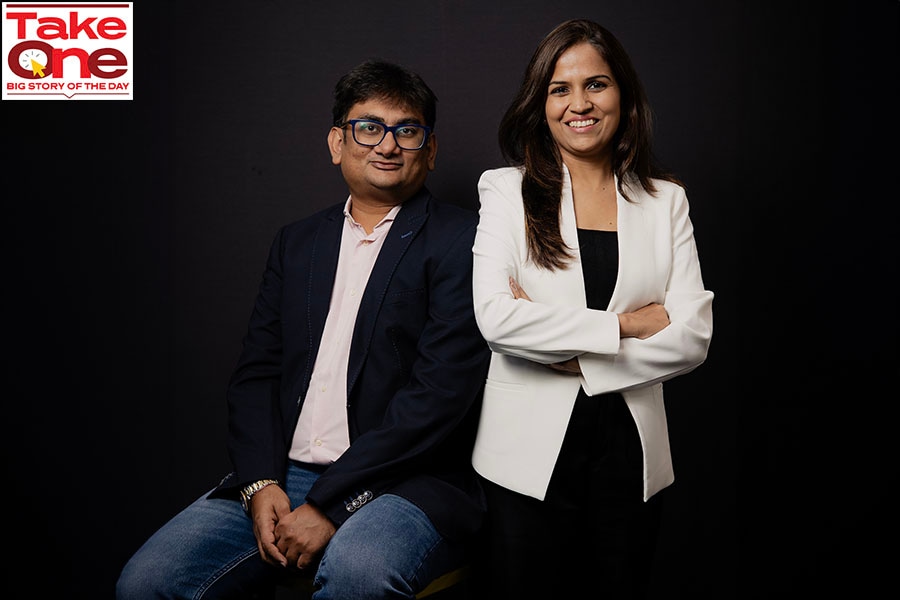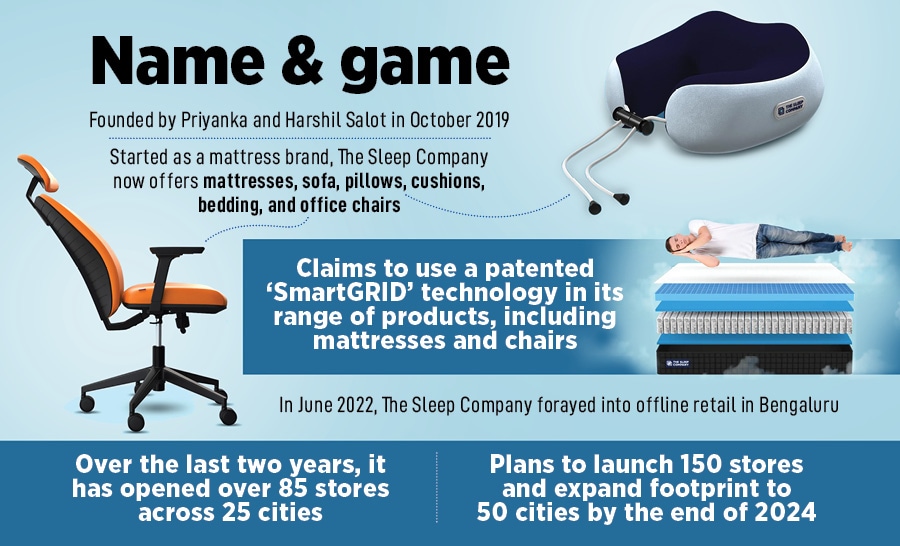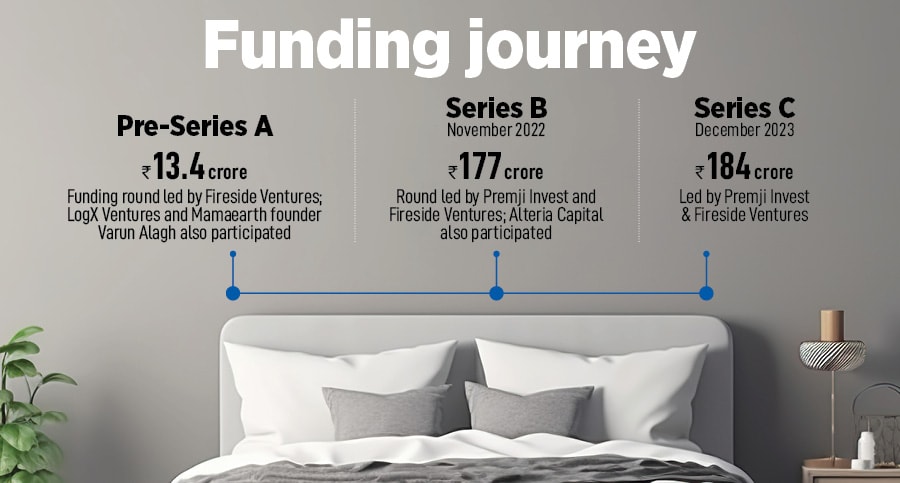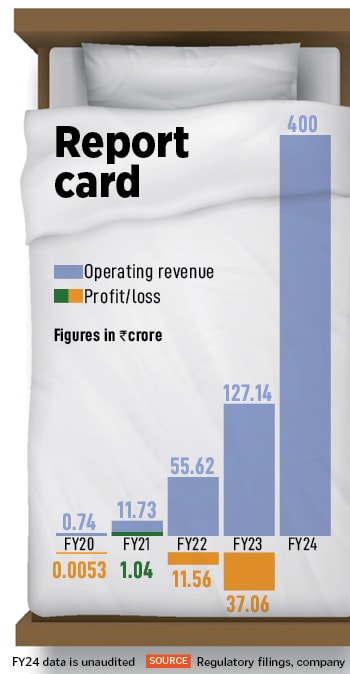
Work, sleep, repeat: The Sleep Company & the right doze
The Sleep Company is disrupting a cluttered mattress and comfort solutions market with its science-led approach. Although it has grown rapidly, it now needs to post a profit
 (L-R) Harshil Salot and Priyanka Salot, co-founders, The Sleep Company
(L-R) Harshil Salot and Priyanka Salot, co-founders, The Sleep Company
Laundry, diapers, babies, and climax… that’s how Priyanka Salot’s story arc transpired during eight years of her stint at P&G. “I started with Ariel. Then they gave me Pampers. And then I got pregnant,” smiles the engineer who was born in a nondescript town in the Ganganagar district of Rajasthan, where she lived for her first 10 years. In 1994, her family relocated to Chandigarh, and the young girl toiled to transition from a Hindi medium to an English school seamlessly, and eventually got her prized catch when she made it to an engineering college in Delhi. Then came the climax.
In fact, Salot’s story has always begun after a climax. Sample this. The year she graduated from IIM Calcutta, 2009, the corporate world had already nosedived into a severe recession. Bereft of ample options, the young management graduate started her career with JP Morgan Chase, and after a brief stint, joined Frost & Sullivan in Singapore. A few months later, she realised that she was not cut out for consulting and investment banking roles.
The realisation, though, didn’t happen for the first time. A few years ago, during her undergraduate years in engineering, the young woman—she was influenced by two books: Shoe Dog by Phil Knight, and Steve Jobs by Walter Isaacson—was gripped with the same sense of déjà vu. “I realised that I didn’t want to be in a technical field,” recalls Salot. “I didn’t want to be an engineer.” Then why engineering? “What do toppers in schools usually do? It’s either engineering or medical,” she reckons. “That’s how engineering happened for me.” The college years made the young woman discover her love for managerial things, she figured out that the IIMs were the best place in the country to study management, and made it a mission to crack the entrance exam.
Back in Singapore, Salot was forced to put on her thinking cap, or shoes. Thanks to Shoe Dog, the young professional had another bout of self-discovery. “I’d tell men and women in their mid-twenties not to settle for a job or a profession or even a career. Seek a calling,” underlined Phil Knight in his memoir. “Even if you don’t know what that means, seek it.” After the first few months into her professional stints, Salot was scouting for her elusive calling. This time, she didn’t have to ‘seek’ hard as her flatmates guided her to her calling. “They used to work at P&G, and I was fascinated with what they were doing,” she recalls. Infatuated with the job description, Salot started behaving like an obsessed lover and reached out to the marketing head of P&G for a role.
There was none. Reason? “They didn’t have a policy of lateral hire,” recalls Salot, who persisted with her efforts and was finally rewarded. “I came back from Singapore, joined P&G in Mumbai, and found my love for consumer brands,” she recalls. She started with Ariel, worked on the detergent brand for over four and a half years, and then was made India head of Pampers. “And then I got pregnant,” she says, taking us back to the climax year of her professional life. Salot explains. “I always had an itch to start something of my own,” she confesses, adding that she didn’t dare to take the plunge. The reason was obvious. “I was earning big money. A salary of over Rs 1 crore was indeed big money.” Big money does, she lets on, inhibit you from taking risks. Salot was in her bubble of comfort.






 Have a look at the numbers. The operating revenue zoomed from Rs 74.05 lakh in FY20 to Rs 127.14 crore in FY23. Twelve months later, the numbers leapfrog to Rs 400 crore in FY24. “By the fourth quarter of this year, we will be profitable,” claims Salot, who has made The Sleep Company transform from a mattress brand to a sleep and comfort tech solutions company that has a wide range of products such as sofa, pillows, cushions, bedding, and office chairs. “We will reach Rs 1,000 crore in two to three years,” she adds.
Have a look at the numbers. The operating revenue zoomed from Rs 74.05 lakh in FY20 to Rs 127.14 crore in FY23. Twelve months later, the numbers leapfrog to Rs 400 crore in FY24. “By the fourth quarter of this year, we will be profitable,” claims Salot, who has made The Sleep Company transform from a mattress brand to a sleep and comfort tech solutions company that has a wide range of products such as sofa, pillows, cushions, bedding, and office chairs. “We will reach Rs 1,000 crore in two to three years,” she adds. 



